The last decade or so has seen some massive changes for road bikes. The mainstream shift from aluminum to carbon fiber in the 2000’s marked the beginning of a new era in bike design, while the introduction of electronic drivetrains in the last 5 years or so has seen a fundamental rethinking of how bikes shift. But what about how bikes stop?
It started slowly. Very slowly, in fact. But in the last year or two, disc brakes on road bikes have really caught on, and are set to create yet another revolution. As always, there are fits and starts, and not everybody is on board (we’re looking at you, UCI), but like most changes, this one is gaining momentum.
Over the last year we’ve had a chance to test ride quite a few disc brake road bikes. Here’s how we thought they fared versus standard rim brakes.
STOPPING POWER
Disc brakes. There is no question about this. Disc brakes deliver incredible stopping power in pretty much all weather conditions. What’s more, that power is easily modulated, which means it’s easier to control how much brake you need at any given time. Often times no more than one-finger is needed to stop the bike in a reasonable distance.Rim brakes, especially with carbon wheels, can sometimes take a little bit to really bite into the rim and slow the bike. This is doubly true if your pads are worn or dirty.
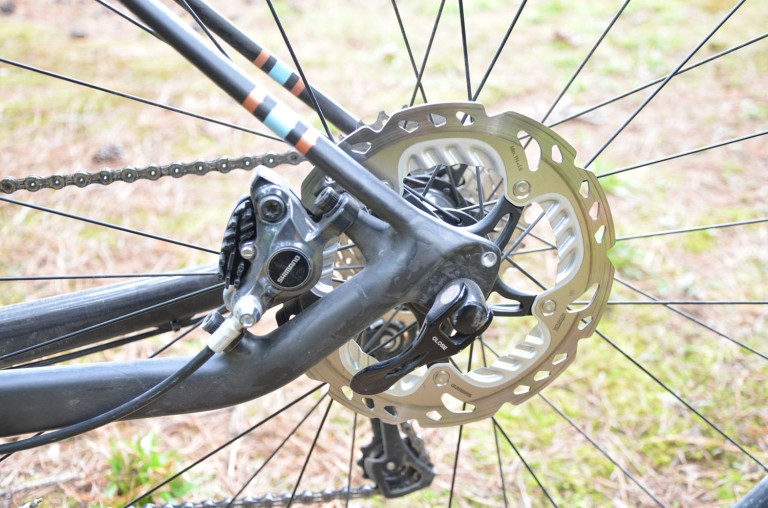 COMPATIBILITY
COMPATIBILITY
Rim brakes—for
now. Disc brakes are still going through growing pains, and in an
industry where the term “standard” is pretty much meaningless, that can
mean some headaches for consumers. Some disc brake bikes come with
standard quick release wheels, some use thru axle. There are all
different kinds of rotor sizes out there, and aftermarket wheel options
are still fairly limited.But these are actually fairly minor problems.
This year will pretty much guarantee a bumper crop of disc brake wheel options, and most of those will be interchangeable between QR and thru axle, making them more versatile for consumers.
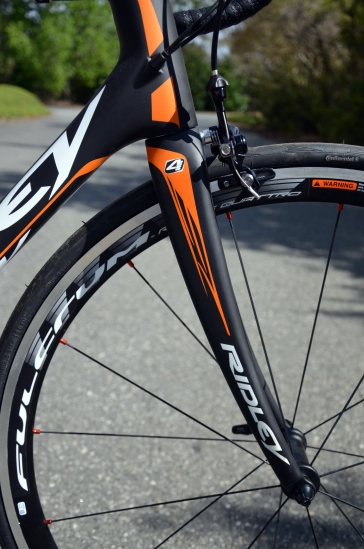
WET WEATHER
Disc brakes. This is a no brainer. No matter what is falling from the sky or laying on the roads, disc brakes don’t care. Snow, ice, and rain don’t have much of an effect on disc brakes—regardless of rim material.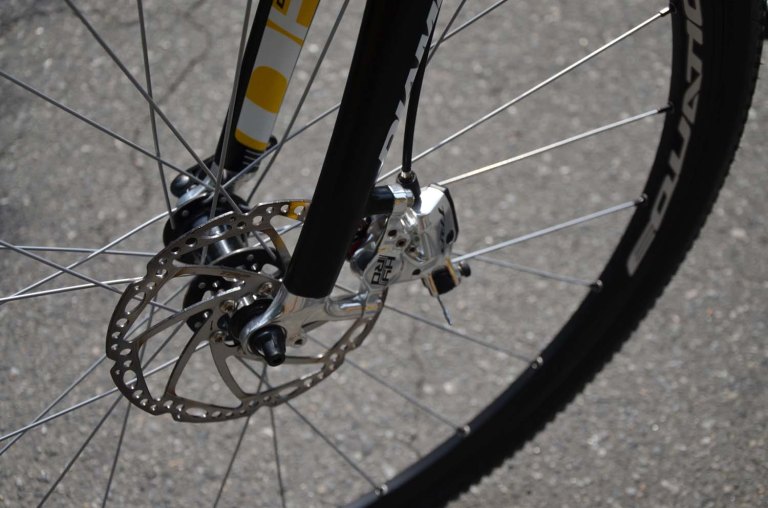 Wet weather conditions can severely limit the effectiveness of rim brakes, especially carbon wheels.
Wet weather conditions can severely limit the effectiveness of rim brakes, especially carbon wheels.EASE OF INSTALLATION AND MAINTENANCE
Rim brakes. Frankly, these are pretty easy. Make sure they’re facing the right way, bolt them on, make sure they’re roughly centered and go. Every other year or so you change the pads.Disc brakes…not so much. Mechanical disc brakes can be notoriously frustrating to install and get centered so they aren’t rubbing the disc rotor. Hydraulic disc brakes are easier to install, but maintenance can be an involved and time consuming, since you have to bleed the lines, replace hydraulic fluid, etc…
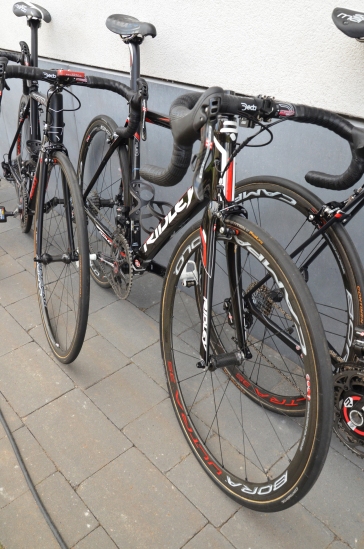
WEIGHT AND AERODYNAMICS
Rim brakes. Because of the simple design, rim brakes are currently much, much lighter than any available disc brake system.And, because of where the brake is placed, disc brakes are also much less aerodynamic than rim brakes.
Bear in mind though that this is likely to change in the next couple of years. As disc brakes become more widely adopted and pressure builds to use them in racing, the industry is likely to begin refining the designs to be lighter, and better incorporated into frames for improved aerodynamics.
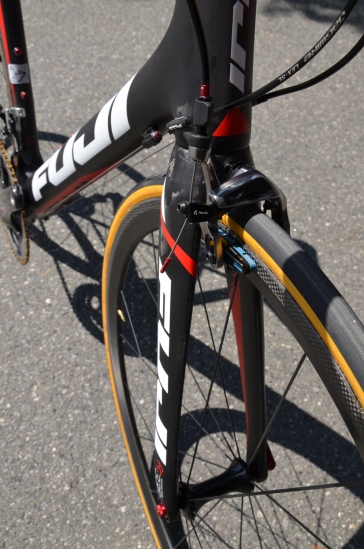
THE VERDICT
More than any other decision, this is going to be a very personal choice. Disc brakes offer unquestionably better and more consistent stopping power than rim brakes, but at a cost of weight and aerodynamics, and they are still not yet race-legal.It’s all a matter of what’s most important to you—and we don’t mean stopping power (that’s important to everyone).
What we mean is that if you love racing, fast road riding, and having plenty of wheel options, then it might be best to stick with rim brakes for the time being.
If you’re just looking for a road bike to ride for the love of riding, like to explore gravel roads, bomb big descents, ride in an area that experiences frequent bad weather, or even for racers looking for a second road bike for training and base miles, then disc brakes are probably the better option.
Without question though, disc brakes are the way forward—so love them or hate them, odds are in the next 5 years, most road bikes will be equipped with them.
None the less, Elevation Ski and Bike will assist you with maintenance and make sure you are comfortable with your choice.
No comments:
Post a Comment